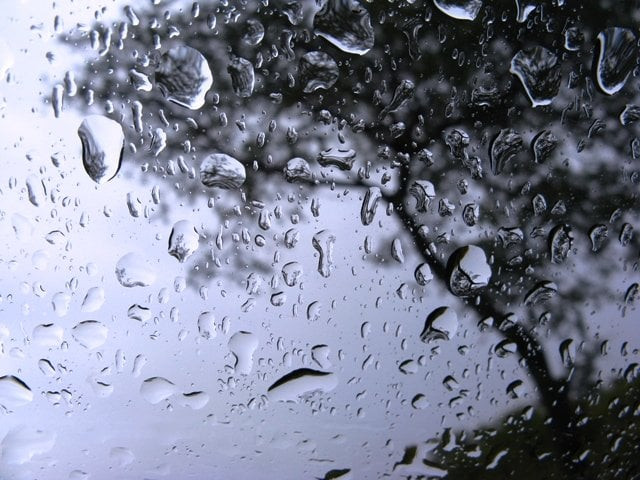Turning curse into blessing: ‘Rainwater harvesting possible in 80% of city’s land’
For the benefit of ecological system, cutting of mangroves should be stopped, advise experts.

For rainwater harvesting, water could be stored and diverted to drainage systems at ground level, says Indian geologist Dr Amar N Joshi. PHOTO:FILE
Do not waste your rainwater because rainwater harvesting is possible in about 80 per cent of the land of Karachi, said Indian geologist Dr Amar N Joshi on Monday.
“I have visited the city for a day and I think Karachi has potential. I suggest the people of Karachi to not waste rainwater,” said Dr Joshi, while talking to The Express Tribune after attending the World Wildlife Fund-Pakistan (WWF-P) workshop under its Climate Change Adaptation Project at Avari Towers.
“I tried to find out information about the coastal belt of Sindh before coming to Pakistan but couldn’t find any,” complained Dr Joshi. He said that Pakistan could replicate Indian projects, adding that it is the right time to seriously think over the issue.

Reclaiming land for construction will affect Karachi’s ecological system, he said, suggesting it would be more beneficial to stop cutting mangroves in the city.
“The problem of salinity is increasing in Karachi,” observed another Indian guest, Stalin D. “It also affects fishing. Save your mangroves and try to understand its importance,” he told The Express Tribune.
“We don’t give much importance to the natural resource - water,” endorsed WWF-P technical adviser Muhammad Moazzam Khan. “A large quantity of water is wasted. Its importance is acknowledged only in terms of agriculture. Yes, it is the need of the hour to use rainwater in cities like Karachi.”
During his presentation, Dr Joshi said that, in the past, water was a matter of concern at the community level. “Now, it is an issue at the government level,” he added. “Earlier, people considered storm water as a nuisance but now it is valued as a resource.”
The Indian geologist, sharing the techniques of using rainwater, said the first step towards preserving rainwater is to stop the speedy flow of running rainwater.

For rainwater harvesting, he said the water could be stored at rooftops, clean land surface areas and rock catchment areas for later use. He said that rainwater could also be diverted to drainage systems at ground level in order not to lose it via evaporation. Dr Joshi said this method can provide water for human consumption, reduce water bills and lessen the need to build reservoirs, which may require the use of valuable land.
The use of water in Pakistan and India is more than in China and America,” believed Dr Joshi. He justified that the greater consumption in these countries was due to the large-scale manufacturing industry.
He said that overpopulation, increased consumption and modern technology were three major factors that had highlighted the importance of the scarce natural resource. “Climate change is another major factor - there is drought-like situation in some areas while in other areas there are extreme floods,” pointed out Dr Joshi, adding that countries facing floods could utilise water in a positive way.
He said that coastal communities are badly affected with the scarcity of water, adding that trees should be planted in areas where salinity levels are high. “It is also better for your environment to plant indigenous trees rather than imported ones,” he stressed.
Dr Joshi was also against the construction of large dams, saying that the level of destruction in terms of displacement and water evaporation far outweighs the benefits.
Published in The Express Tribune, January 28th, 2014.



















COMMENTS
Comments are moderated and generally will be posted if they are on-topic and not abusive.
For more information, please see our Comments FAQ